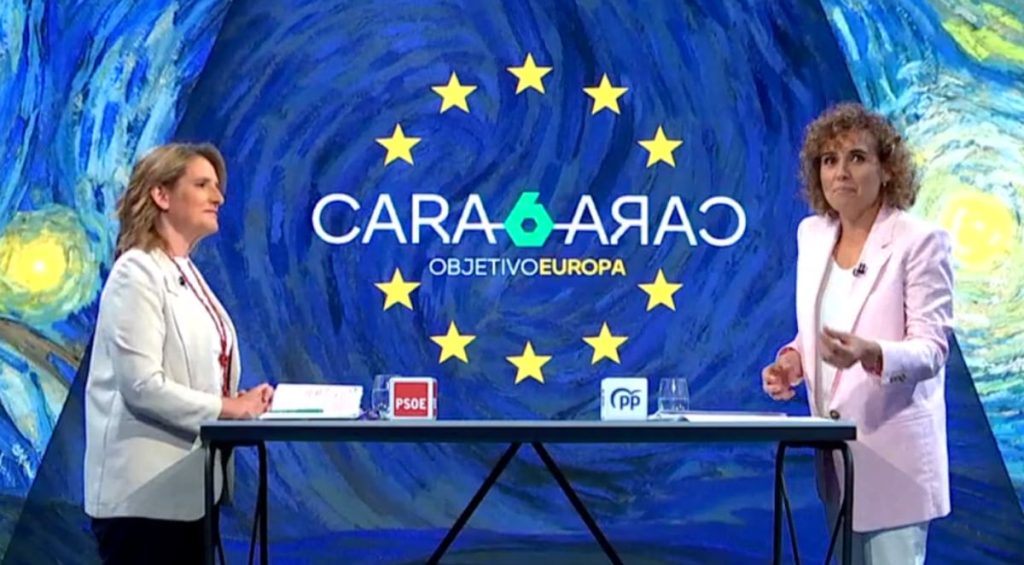The only face-to-face meeting scheduled between the candidates from the PSOE and the PP did not clarify the big question of the European elections taking place on June 9. The head of the popular list, Dolors Monserrat, avoided answering the socialist Teresa Ribera whether her party will form a pact with Vox in Europe and dodged the question about agreements with the far right: “If we win the elections, we will lead the policies in the European Parliament,” she defended in a generic way while insisting that the PP is a “Europeanist and reformist” party. The first electoral debate revealed the different strategies of both parties for the election: while the PP has brought back the issue of amnesty and the PSOE’s pacts with Junts, which had been put aside in the Catalan elections, the socialists seek to activate their electorate by raising concerns about the PP’s agreements with the far right, as they did on the 23rd of June, while advocating for the green agenda and social justice.
In a generally moderate-toned discussion without disqualifications or insults, the socialist Teresa Ribera and the popular Dolors Montserrat clashed on migration policies and the recognition of the State of Palestine. The socialist candidate welcomed the announcement that Spain will recognize the Palestinian state on May 28 alongside Norway and Ireland as a way to “do justice to a terrible situation.” On the other hand, Montserrat accused the PSOE of recognizing Palestine alone to cover up government corruption. They also discussed the control of irregular migration, with Ribera advocating for solidarity in hosting migrants while Monserrat emphasized the fight against mafias and the strengthening of borders to combat irregular immigration.
Ribera defended the government’s efforts in agriculture, highlighting the financial resources dedicated to the sector during difficult times, and accusing the PP of attacking the agricultural sector. She criticized the PP and accused them of siding with the far right against the 2030 Agenda. The debate also touched on housing policy, with Ribera emphasizing the need for a European housing plan and criticizing the decisions of PP and Vox-led communities regarding rent controls and housing sales to investment funds. The PP candidate proposed tax exemptions for young people in their first five years of work to save for housing access. In terms of fiscal policy, Ribera highlighted the PSOE’s proposal to create a European tax on large fortunes, while Montserrat suggested a reduction in VAT on meat and fish to combat inflation.
During the debate, Montserrat repeatedly brought up the issue of amnesty, which the PP had avoided during the Catalan campaign but has now resurfaced as a mobilizing element for their electorate in the European elections. She criticized the measure and questioned the decision to grant amnesty to fugitive politicians, referring specifically to Carles Puigdemont and his alleged ties to Putin. The discussions also included topics such as the recognition of Palestine, the fight against terrorism, and the balance between security and human rights in migration policies. Both candidates presented their parties’ positions on various issues, showcasing their respective priorities and strategies for the upcoming European elections.


